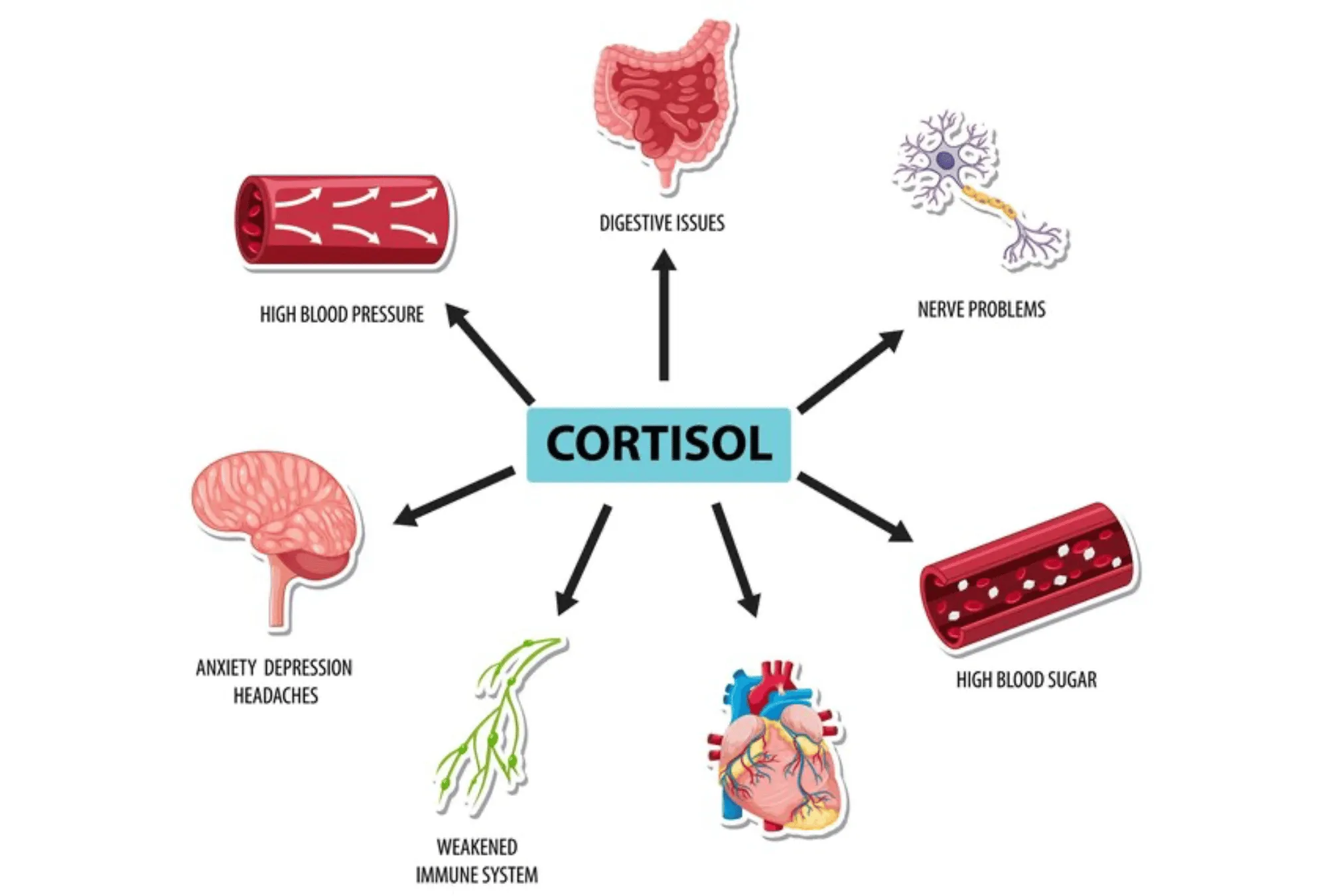


The stress hormone cortisol, much like a watchful conductor leading an orchestra, coordinates a thorough response to external pressures, significantly impacting various physiological functions. One of cortisol's standout roles is its extraordinary ability to regulate metabolism and access stored energy reserves, establishing it as a pivotal element in the body's adaptive strategies.
During stressful situations, cortisol acts as a metabolic conductor, initiating the release of energy from multiple sources within the body. It facilitates the extraction of stored energy from the liver, fat tissues, and muscles, guaranteeing a quick and effective reaction to the challenges posed by stress. This well-coordinated release of energy resources is a tactical adaptation, equipping the body to face the dynamic obstacles it may encounter.

» Problems concentrating
» Lack of energy
» Addison‘s disease
» Passivity and apathy
» Difficulty to get up in the morning and become really awake
» constant fatigue, despite sufficient sleep
» Forgetfulness
» Sugar cravings
» Diminished ability to deal with acute stress
» Tensenes
» High blood pressue
» Increased cholesterol levels
» Susceptibility to infection
» Difficulty sleeping
» Disorder of the metabolism with over weight
» Increased belly fat